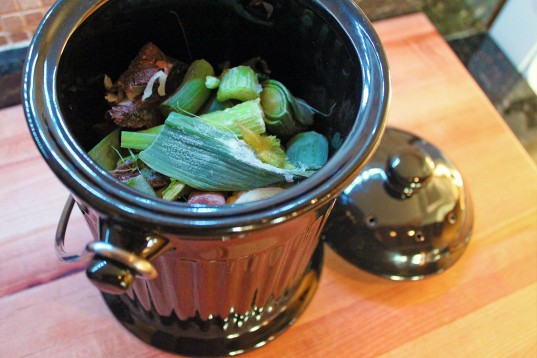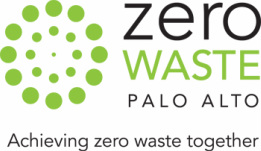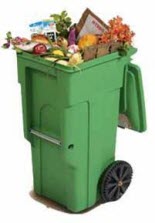
It’s estimated that 40% of food in the US ends up in the garbage- compost helps turn that waste into a healthy addition to the planet
Palo Alto prides itself on being a ‘green’ city that is on the forefront of environmental sustainability. So it’s been a mystery to Palo Alto Pulse why, unlike many towns all over the Bay Area (including San Francisco and Menlo Park), there is no curbside food compost pick up in Palo Alto.
To sort through all the questions around compost in Palo Alto (and avoid shoveling any compost in the process), we sat down with Matthew Krupp, the Administrator of Palo Alto Zero Waste.
Why is there no residential curbside food compost pick up in Palo Alto?
Matt Krupp: Palo Alto has been working to implement a residential curbside food waste pickup system for the past seven years and we are finally getting close to putting a program in action. The City produced a Zero Waste Plan in 2007 that set out a range of strategies for getting us to a level of ‘zero’ waste production by 2021, including ideas for reducing household waste. A first step in this plan was our contract with Greenwaste in 2009, which offered the City of Palo Alto a curbside food compost program but the price was too high. We have explored other, lower-cost options and tried a pilot program in the Greenmeadow neighborhood last year that had mixed results because residents were required to purchase special bags and the process was a bit confusing.
We are now working on a proposal that will offer residents a very simple curbside pickup system for food waste similar to the one used by other cities around Palo Alto, at a cost we think is manageable. There are four compost facilities that will gladly take our residential food waste and the closest is only 15 miles away, so the greenhouse gas consumption from hauling it would be minimal.
City Council’s decision on December 8th should allow Zero Waste to move forward on this effort soon and we hope to have a curbside program up and running by summer 2015.
We are also proud of the robust home composting program in Palo Alto and we think between 5-10% of residents here have their own backyard systems. Palo Alto Zero Waste offers free composting workshops and materials for people who are interested in starting their own compost systems.
What’s going on with Prop E and the idea of Palo Alto building its own compost facility?
MK: Measure E, passed in 2011, directed the City of Palo Alto to explore the idea of building a local compost facility next to Byxbee Park (the site of the former landfill) that would process both food waste and garden waste, and prevent us from having to haul our waste to far away locations.
On December 8, City Council decided to table the exploration of a compost facility in the Baylands due to the estimated $40 million cost.
Instead, the City will move forward with taking the compost material produced in Palo Alto (including food and garden waste) and sending it to one of four existing compost facilities that are located within a relatively close area, which is estimated to cost $18 million over the next 15 years.
What is the role of Zero Waste Palo Alto in all of this?
 MK: Our job is to provide maximum value to taxpayers in the area of waste disposal and reduction, and to be stewards of public trust and resources. We are excited to move forward with food waste pickup to decrease waste in Palo Alto.
MK: Our job is to provide maximum value to taxpayers in the area of waste disposal and reduction, and to be stewards of public trust and resources. We are excited to move forward with food waste pickup to decrease waste in Palo Alto.
For more information about Palo Alto, check out this great info on Palo Alto Pulse– City Finances in Palo Alto: Where does the money come from and where does it go? And What does the City Council do in Palo Alto?






